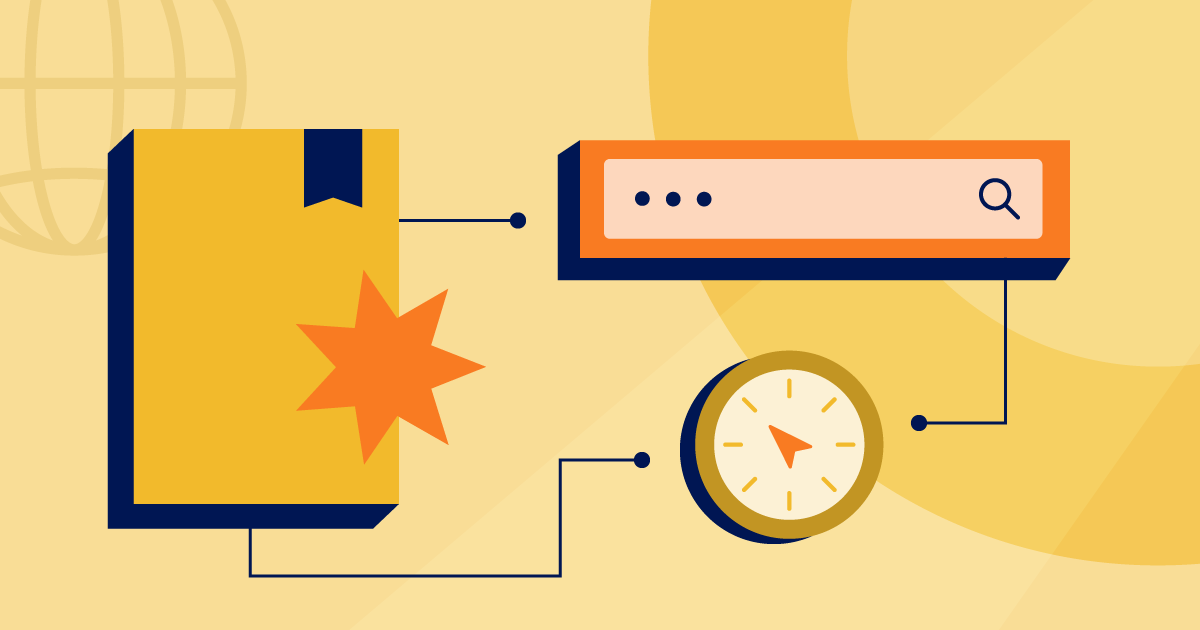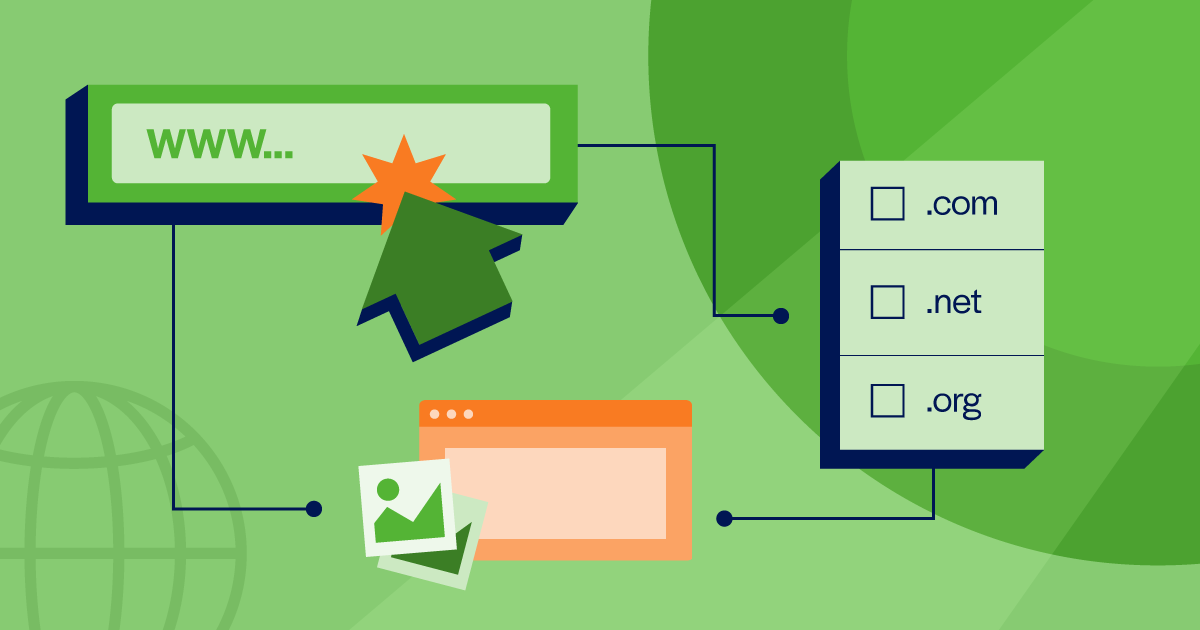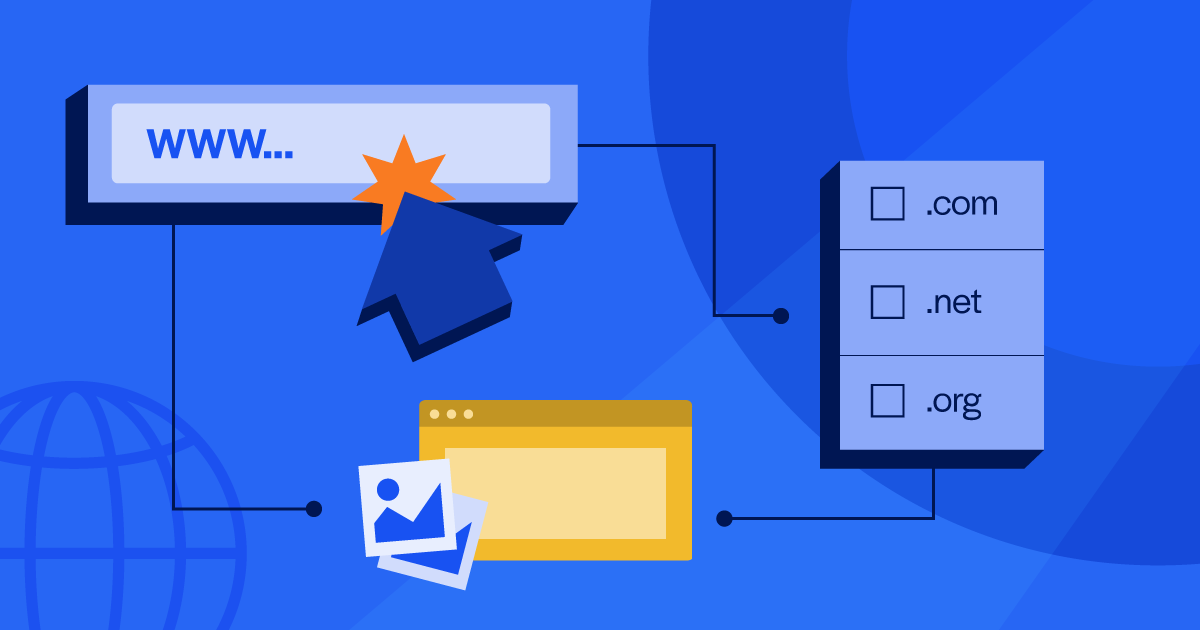Want to make your business known online?
For many, the first step is launching a website—a process that begins by registering a domain name. If you’re stepping into this new territory for the first time, don’t worry! As a trusted domain registrar, we’re here to help you navigate all things domains, from A to .zip.
In this blog, we’ve wrangled up some of the most frequently asked questions from our clients who are also just beginning their digital journeys. Here, you’ll find straightforward answers on basic domain registration, pricing, and ownership.
You’re already on the path to making informed, strategic decisions for your business. Now, let’s delve deeper into the world of domains and set the stage for your online success.
Domain Registration
How long does it take to register and process a domain name before it’s ready?
Registering and processing a domain name is usually fairly quick, often just taking a few minutes to a few hours. The entire process involves choosing a domain, completing the registration with a registrar (like us), and then waiting for it to propagate across the internet. It can take up to 24 to 48 hours for your domain to become fully active as servers worldwide update your new domain information. This ensures that anyone, anywhere, an access your website once it’s live.
Which characters can I include in my domain name and how long can it be?
Your domain name can be up to 63 characters long, not including the domain extension (like .com or .net). This limit ensures that it works well and can be reached on different systems and networks. As a general rule, the shorter, the better! You can include letters (a-z), numbers (0-9), and hyphens (-), as long as it doesn’t start or end with a hyphen. Special characters like symbols and spaces are not allowed. But it’s wise to avoid hyphens or anything that could cause confusion altogether. Hands down, the best domain names are easy to remember!
What’s the easiest way to search domain names?
The best way to search for domain names is to use a domain name search tool at an online domain registrar’s website, like ours. This allows you to enter your desired domain name and check its availability instantly. We have direct access to the Domain Name System (DNS) database, and our search feature allows you to easily search multiple domain names. When you find your perfect fit, we can help you secure it too. Easy-breezy!
Can I register a domain name if I’m not ready to use it?
Yes, you can register a domain name even if you’re not ready to put it to use. People do this to secure a desired or unique name before someone else does, for brand protection, to prevent domain squatting, as an investment to sell later, or to plan for future projects or businesses. If you have a good idea, there’s no reason you have to wait!
You can also “park” a domain, which means the URL will display a “coming soon” page until you’re ready to use it. Your registrar should provide domain parking free of charge.
What is an exact match domain name?
An exact match domain name (EMD) is a website domain that contains the keywords a website is trying to rank or appear for in search engine results pages (SERPs). They’re identical or nearly identical to the phrases people are likely to search for. For example, if a book business in Spokane is called Spokane Books, SpokaneBooks.com would be an EMD. Other examples could include: CheapHaircut.com, RentKayaks.com, and AdoptBeagles.com.
It’s no surprise that a good EMD can give you a competitive advantage, but many of the best are likely already owned. It’s smart to explore if you can secure your brand’s exact match domain.
Domain Pricing
What’s the average price for a domain name?
You can expect to pay in the range of $10 to $15 per year for standard top-level domains (TLDs) like .com or .org. Prices can vary greatly based on factors like the domain extension, the registrar you choose, and any added features or services you might opt for. Premium or highly sought-after domains can cost significantly more.
Why is domain renewal usually more expensive?
Domain registration is often more expensive than the initial registration due to many registrars offering introductory discounts to attract customers. After the first year, their prices revert to their regular rate, which is higher. This is common practice in the domain registration industry, but that’s not how we do things! At Domain Registry, you’ll find our pricing is always simple—we don’t lure you in with an attractive registration fee only to hit you with a pricey renewal later. We offer pricing that’s always competitive.
Why are some domains significantly more expensive?
The cost of registering different TLDs varies widely due to many factors. Each TLD (like or .store or .ninja) has a registry that sets its pricing. This price can change based on how popular or unique the domain is, how much it costs to maintain and manage it, and if it has extra features like enhanced security. Domains that are meant for certain industries (like .io for tech) might cost more too. Also, higher prices can help keep these domains exclusive, deter people from buying lots of them to sell later, and keep up with changing trends online.
Domain Ownership & Security
Can I buy a domain name forever?
Due to the way domain registration is structured to ensure fair access and management, you can’t buy a domain name permanently. You can buy or register a domain, but it’s not a one-and-done transaction. Domain ownership is based on a renewable lease system. Think of it as a rental, in that you “own” a domain as long as it’s registered to you, usually for a period of 1 to 10 years. After this period, you must regularly renew your domain before it expires. If you don’t renew, you risk losing the domain to someone else.
Can I set up custom email addresses with a domain name I own?
Yes, having a custom email like [email protected] is a pro move. It helps establish credibility and professionalism. You’ll need to purchase a domain-based email hosting service to set up custom email addresses with your domain name. Once you’ve purchased the service, you’ll be given instructions to set up custom email addresses with your domain name.
What is domain security and do I need it?
Protecting your privacy while setting up your domain is super important and highly recommended. Good registrars will provide you with a free privacy protection service. A domain security or Domain Privacy service will hide your personal contact information, such as your name, address, and phone number from public view. The registrar will list their contact info instead on the public domain registration records. This helps protect you from spam, fraud, and unwanted contact. That’s why it’s included with every domain registration with us!
Check out our blog for more useful info on Domain Privacy & Security.
Now equipped with the answers to many of the most common domains questions, you’re set to make more informed decisions as you take your business or brand online. Just remember, your domain is more than just a random web address—it’s the foundation for your online presence. So go ahead, choose wisely, and let your digital story unfold!




